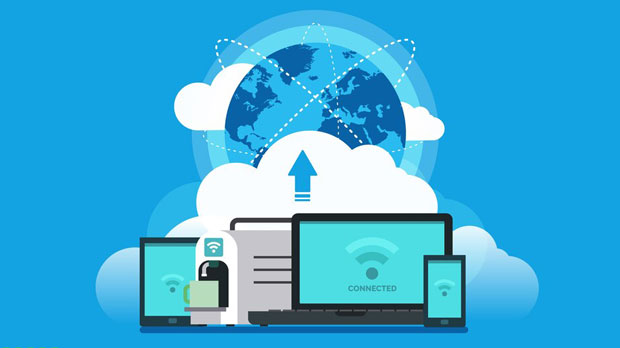In recent years, the use of proxies has gained significant popularity for various purposes such as enhancing online privacy, accessing restricted content, and automating tasks. Among the various tools available, SwitchyOmega and VPS (Virtual Private Server) are frequently discussed in the context of deploying a private residential proxy. But can these tools be combined to create a private residential proxy network? In this article, we will delve into the feasibility of using SwitchyOmega in conjunction with a VPS for setting up such a proxy system, and we will explore the technicalities, potential challenges, and overall effectiveness of this method. what is a residential proxy?A residential proxy is a type of proxy that uses real residential IP addresses instead of data center IPs. This makes the traffic look like it’s coming from a legitimate home user rather than from a server, which helps in bypassing security mechanisms and geo-restrictions that block data center IPs. residential proxies are widely used for tasks such as web scraping, ad verification, and accessing geo-blocked content, as they appear more natural to the websites and services being accessed.What Is SwitchyOmega?SwitchyOmega is a browser extension that allows users to manage their proxy settings easily. It provides a user-friendly interface for configuring proxy servers, switching between them, and automating proxy changes. While it is an efficient tool for proxy management, its role in creating a full-fledged residential proxy setup is limited to managing and routing traffic to the chosen proxy.What Is VPS (Virtual Private Server)?A Virtual Private Server (VPS) is a virtualized server that mimics a dedicated server within a shared hosting environment. It offers more control, resources, and customization compared to shared hosting, allowing users to install and configure specific software or systems. A VPS is commonly used for running web applications, hosting websites, or even setting up proxy services, giving users the flexibility to deploy customized solutions.The Feasibility of Using SwitchyOmega with VPS to Set Up a Residential ProxyWhile SwitchyOmega is an excellent tool for managing proxy connections in your browser, it is not designed to create a residential proxy network on its own. A VPS can provide the necessary server resources to run proxy software, but to deploy a private residential proxy, there are several technical components involved that go beyond the scope of SwitchyOmega’s capabilities. VPS Configuration for Proxy SetupTo create a proxy server on a VPS, you will need to install proxy server software that supports residential IP addresses. The VPS acts as the host for this proxy server, but it does not inherently provide residential IPs. Residential IPs typically come from Internet Service Providers (ISPs) through real households, meaning that to deploy a residential proxy, you would need access to such IP addresses.Using a VPS alone will only give you a data center IP, which is often easier to detect and block by websites. A private residential proxy requires access to real residential IPs, which usually involves sourcing them from specific networks or through a third-party provider. Thus, while a VPS can serve as the platform for managing and routing traffic, it will not, by default, provide residential IP addresses necessary for a true residential proxy. Role of SwitchyOmega in Proxy ManagementSwitchyOmega plays a crucial role in managing and switching between different proxies in your browser. It allows users to configure proxy settings, set up profiles for different proxies, and automate the process of switching proxies based on conditions. However, it does not have the functionality to establish a residential proxy server. In this context, SwitchyOmega would be used to connect to a residential proxy network or a proxy server running on a VPS, but it would not be responsible for sourcing or assigning residential IPs. Technical ChallengesEven if you have a VPS with proxy server software installed, obtaining a sufficient number of residential IPs can be a significant challenge. Residential IPs are generally not easily obtained through standard VPS hosting providers. They require access to large-scale residential networks or partnerships with third-party services. Without such access, your VPS would only be able to provide proxy services using data center IPs, which, as mentioned earlier, are less effective for bypassing restrictions.Additionally, setting up proxy software on a VPS and configuring it for optimal performance requires technical expertise. It involves configuring firewall settings, ensuring proper routing, securing the server, and possibly dealing with issues such as IP rotation, session handling, and anonymity, which can be difficult for users without experience in server administration.Alternative Solutions for Deploying a Residential ProxyWhile SwitchyOmega combined with a VPS may not directly provide a means to deploy a private residential proxy, there are alternative solutions that might be more effective for this purpose:1. Residential Proxy Networks: Specialized providers offer access to residential IPs through vast networks of real user devices. By subscribing to such a service, you can bypass the need for VPS setup and directly use residential proxies for your browsing or scraping tasks.2. Dedicated Proxy Services: Some dedicated proxy services provide residential proxies with the necessary software and IP rotation features included, saving users from the complex setup and technical challenges.3. Custom VPN and Proxy Configurations: Advanced users may consider setting up a custom VPN or proxy solution on a VPS, where they can configure more complex systems involving multiple IPs, IP rotation, and more, but this would still require acquiring residential IPs from other sources.In summary, while it is possible to use SwitchyOmega in conjunction with a VPS to manage and route traffic through proxy servers, this setup does not inherently create a private residential proxy. A VPS can host proxy software, but it will need to be supplied with residential IPs from external sources to function as a true residential proxy. SwitchyOmega is useful for managing proxy connections but does not provide the means for sourcing residential IPs. For those seeking a private residential proxy solution, alternative methods such as subscribing to residential proxy networks or dedicated proxy services are likely to be more effective and easier to implement.For individuals who want to maintain privacy, bypass geo-restrictions, or conduct tasks like web scraping, leveraging the right tools and understanding the limitations of VPS and SwitchyOmega in this context is key. Ultimately, while VPS and SwitchyOmega can be part of a broader proxy setup, creating a residential proxy network requires access to residential IPs, which is not something these tools can provide directly.
Apr 16, 2025
![arrow]()




























































